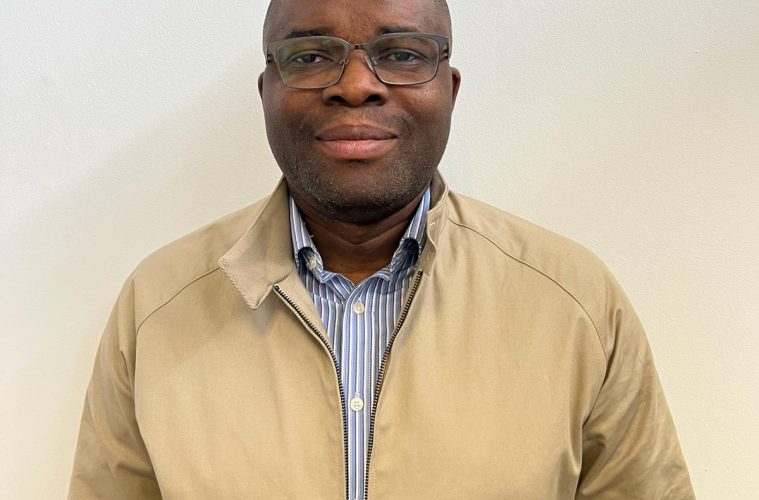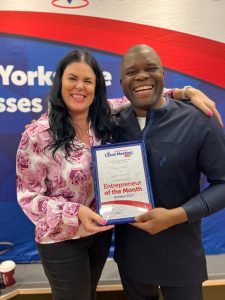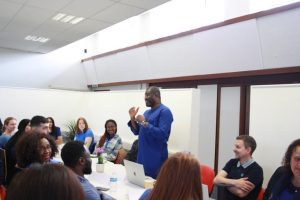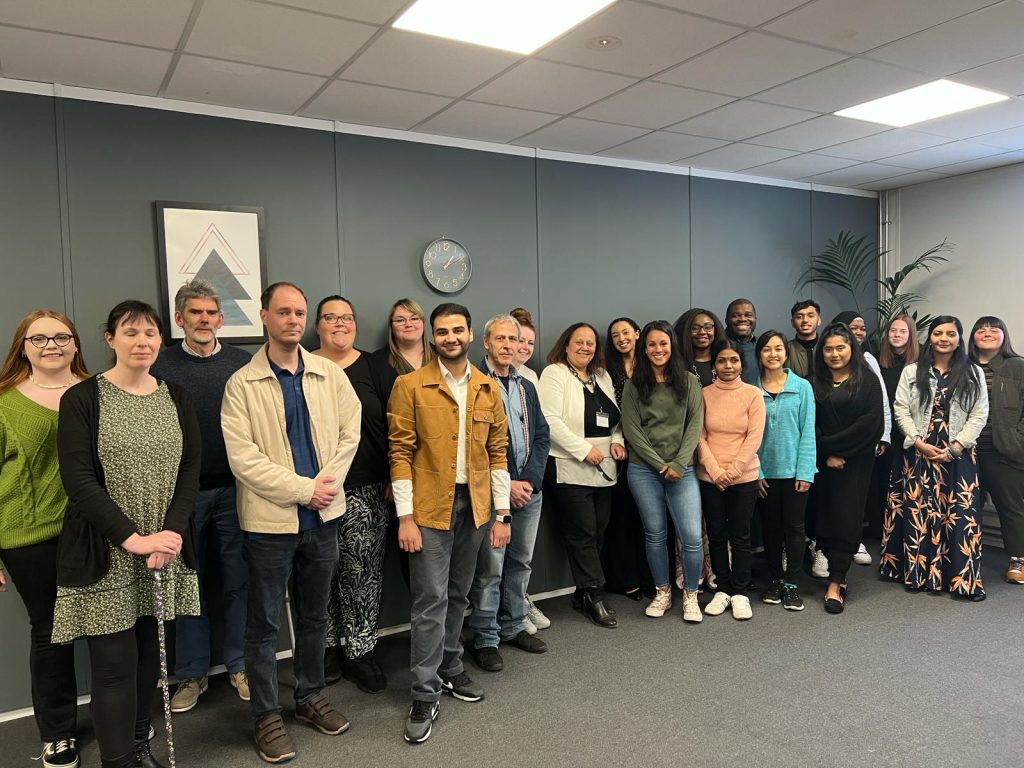The year was 2012 and reports were highlighting dire statistics about the lack of Maths teachers within British schools. Applications for Maths PGCE’s programmes had dwindled by 10% and a drive to increase the numbers of teachers in subjects modern languages, the sciences and maths meant that graduates pursuing Initial Teacher Training (ITT) could be eligible for a tax-free bursary of at least £12,000 which surged to as much as £20,00 for those with a first-class degree during that period.
This era saw Jonah Ulebor, who is the brainchild of Lextra Learning, a national education tuition company qualify as a Maths teacher. Jonah’s parents founded two schools in Nigeria. The last school they founded was named Christ the King Secondary School in his childhood town, Agbor Delta Nigeria and he became an administrator of the school for 3 or 4 years in his mid-twenties.
Arriving in the UK, chiefly to study. After completing his degree in Electrical Engineering, Jonah did consultancy work for a while, but the everlasting impact of his more youthful days in Nigeria imbued him to pursue teaching as a vocation. ‘’I know I could inspire young people to want to do well’’ says the educator.
Although much of Jonah’s administrative educational experience was in Nigeria, he was far from a neophyte in the education sector. Much of the educational policies in his native country were modelled on the British colonial tradition, which could be seen as problematic in illustrating the legacies of the empire, yet this paradoxical relationship with the ruins of the empire allowed Jonah to adjust to the structure of his new settlement more seamlessly than may otherwise have been possible.
While teaching in a multitude of schools in the Yorkshire region from Sheffield in the South to Leeds in the West and York in the North; Jonah was instantaneously cognizant of the class and race inequalities that pervaded the school system. Jonah said: ‘’I feel that my experience in schools opened up some enlightenment for me to recognise that education was not a playing field in lots of UK schools’’.
Having taught in comprehensive schools and seeing stark differences in what is taught in compassion to an independent school he taught at, further expounded Jonah’s awareness of the issue at hand. Rather than surrender to the miscarriages of justice he witnessed within schools, Jonah chose to tap into the administrative and managerial experience he had acquired from his parent’s schools in Nigeria.
With his well-resourced educational toolkit accompanied by his formal teacher training and over 6 years of experience teaching in British schools, Jonah ventured into creating his own educational tuition company. Jonah’s experience ‘’arose a passion in me for me to create a space where I felt I could inspire young people to achieve and that is how my company, Lextra Learning started.”
A crude awakening for Jonnah was the lack of Black and global majority teachers inside British schools. ‘’I have been in schools where I am the only Black teacher, but the pupils are from diverse backgrounds’’ says Jonah. The rapid growth of children from a global majority background in England only compounds this gross mismatch of teachers and pupils in terms of ethnicity. National statistics from 2023 show that 35.4% of pupils in all forms of secondary school (excluding independent schools), are from a global majority background, while at primary school level the figure is just over 36%. The working age of Black people within the UK is approximately 4.6%, yet a meagre 2.5% of teachers are said to be from a Black background.
‘’The things I was finding in schools was that young people, especially children of colour were not having the aspirations for education for different reasons. What we usually call community culture capital’’. The struggle for educational justice amongst Black populations in Britain has been a long and turbulent struggle filled with both devastation and victory in an unforgiving environment of low expectations which continues to unfold today. Jonah puts some of this into context. ‘’Historically. The story of the Empire Windrush was a story of people who came from the Caribbean. Two decades on, they realised that their children were not getting the real deal in schools, and they had to take ownership of the process. That is how Black supplementary schools started’’ said the Maths teacher.
‘’I found out that in today’s Britain that seriousness exists. That low expectation for Black children for whatever reason is still there. Black children are three times more likely to be excluded from schools when compared to children of other ethnicities’’ said the father of three daughters.
Another concerning and detrimental observation that Jonah is eager to share his frustrations about is the tiering system used in many schools. ‘’When I went into classrooms and I was going to teach a bottom set for example maths group, I thought that Black children made a huge proportion of those classes. For me, I knew something was absolutely wrong. Many of these children were disengaged from the school system because they did not feel like the schools represented them. They did not feel challenged and so they had just given up’’ said Jonah.
Much of Jonah’s commentary echoes research by Prof David Gillborn and Deborah Youdell from the late 90s looking at how measures such as tiering and class settings are used to prohibit Black children from being eligible to take higher tier examinations, thus rendering their grades capped by default at levels below their academic ability which in turn affects employment and further education prospects. In many cases, there is no consultation with the pupils and parents are oblivious to what is happening which is akin to the ‘educational subnormal schools’ that many Black children were wrongly placed in over 50 years ago.
‘’I believe that schools in the UK to an extent there are systemic challenges that still make it possible for Black children to lag behind and that is something that needs to change. And I think that is one of the things that I have taken as my passion to do’’ asserts Jonah.
Lextra Learning, which was established in 2015 by Jonah in Leeds, West Yorkshire is addressing some of the inequalities that prevail within our education system. From very modest beginnings, Lextra Learning started with one of Jonah’s daughters and one other child. The tuition service which initially only served the Leeds region has expanded across the UK virtually amid the COVID lockdown in 2020. ‘’We had never done online until that point’’ admits the founder. ‘’There were lots of parents who were sceptical about the impact of online’’ adds Jonah. Utilizing some of the funding that was available during the covid lockdown, Lextra Learning allowed cynical parents to pay half of the fees that would usually be paid for in-person tuition. The plan worked and not only was Lextra able to retain students, but the company saw exponential growth across the UK as satisfied parents witnessed tutorials being channelled through the virtual world to the children.
‘’They [parents] suddenly found out that online learning works for their children’’ says the educator with an elated smile. Central to the values of Lextra Learning is the user experience. To achieve and maintain a bespoke service, Lextra still has a physical centre in Leeds. A second centre also operates in the periphery of London in Dagenham.
Lextra Learning which is headed by school principal, Veronica Cairn recruits dedicated teachers from diverse backgrounds who are committed to social justice and the very fabric of their services reflects that.
To achieve their objectives, Lextra Learning runs a series of meetings with parents where information is exchanged about factors such as how to fully make use of school reports, topics to raise at school parents’ evenings and how to build and maintain a relationship with your child’s school. We are on a campaign to ensure that Black children mainly get social justice. Not to say that we discriminate because we have a host of different children at Lextra, but over 90% are from a Black minority ethnic background’’.
Jonah who is also a PhD candidate researching the role of Black supplementary schools in the education of Black children said: ‘’We really want to do the best for our children and sometimes, that means challenging them by providing good quality lessons. But sometimes it also means saying you are not doing as well as we expect. We want more. What can we do to help you as a child?’’
Lextra Learning has a team of well-seasoned educators who are all based in the UK and understand the education system. Lextra offers tuition for primary school children and secondary level young people in Maths and English and A Level Science and Maths. Nearly all their tutors are fully qualified teachers, with an individual average of 12 – 20 years’ worth of school-based experience.
A firm believer in pushing children beyond limited societal perceptions that often regulate Black children to an arrested development of their intellectual capabilities, Jonah declares ‘we want to flip that narrative which operates in schools where it is said that Black children are not achieving the top grades or cannot go to the best possible universities because we believe that is completely not true. It is symbolic of systemic racism in our society’’ argues Jonah.
To think that in 2007, Jonah had his business visa application rejected by the home office because he did not have at least two full-time staff members. Today his company, Lextra Learning has over 35 staff on his payroll and the tuition company has taught hundreds of students who are soaring throughout soceity.








